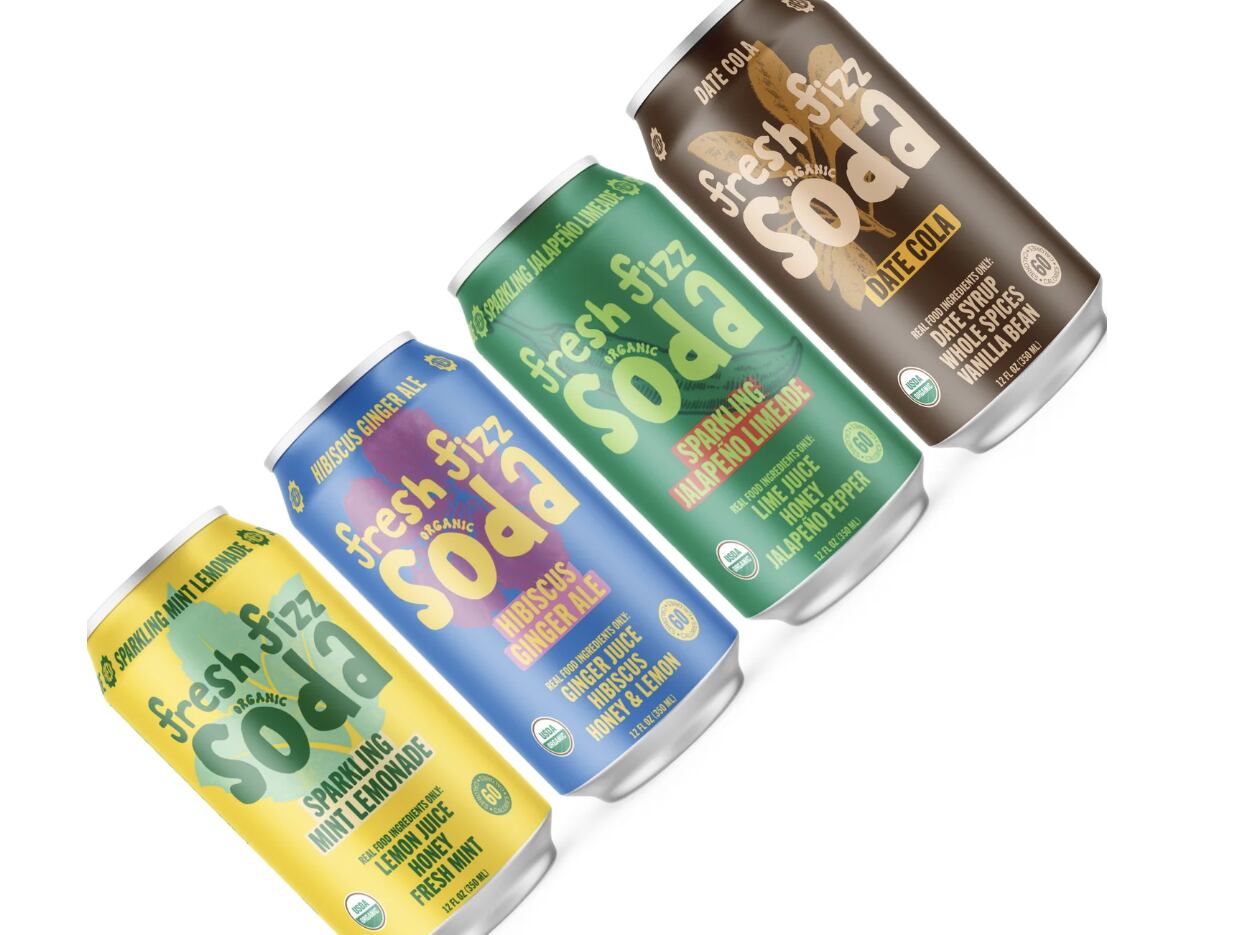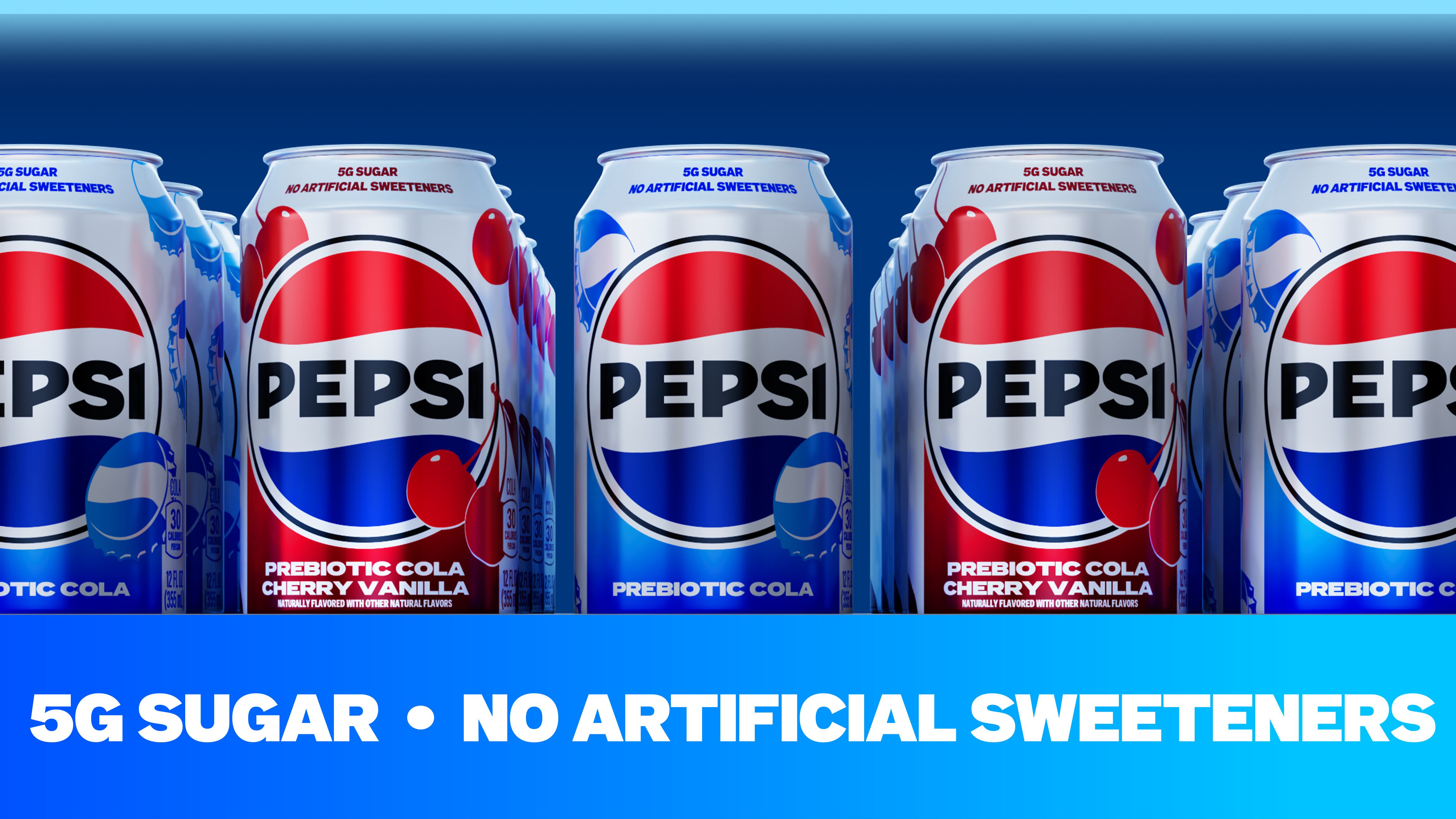In a beverage aisle crowded with functional claims, Fresh Fizz is taking a different approach: simplicity. Founded by Rebecca and Yoni Schwartz, the New York–based soda company is built on a back-to-basics formula that uses herbs, spices, juices and natural sweeteners like honey, maple syrup and date syrup.
Fresh Fizz’s clean-label ethos informs every part of the business, from packaging to production to retail strategy, according to the founders. The brand calls out its ingredients directly on the front of the can — similar to RXBar’s approach — making it clear to consumers that what they see is what they get," says Rebecca Schwartz.
Production and sourcing
Formulating sodas without flavor extracts requires a different playbook. The team sources bulk frozen herbs and spices, steeps them into large-batch teas and then filters them down before adding juices and sweeteners. Most of the ingredients are sourced in the US but organic honey, which Yoni claims is nearly impossible to produce domestically, comes from South America.
Self-manufacturing has been a game-changer, Yoni adds, allowing Fresh Fizz to run production daily, maintain tighter quality control and launch new SKUs quickly.
The move to self-manufacturing was informed by early growing pains: an improperly filtered batch that nearly triggered a recall, Rebecca says. Instead of relying on co-packers, the founders opted to bring production in-house for more control and faster responsiveness. “It gives us flexibility,” Rebecca explains. “We don’t have to wait months for a production slot, and we can fill orders or test new flavors much faster.”
Retail and distribution: From neighborhood stores to national chains
Like many early-stage beverage brands, Fresh Fizz began with a boots-on-the-ground approach. Rebecca personally sold into neighborhood shops before gaining traction with local chains and eventually landing distribution through KeHE.
Today, Fresh Fizz has a presence across the Northeast and select regions in Southern California, with placements in natural and organic retailers such as MOM’s Organic and Fairway. Independent and health-conscious retailers remain the brand’s strongest channel, reflecting its consumer base of educated, label-savvy shoppers, Rebecca adds.
Sampling also is critical to Fresh Fizz’s retail success. Buyers and consumers alike can taste the difference in Fresh Fizz’s ingredient-first formulations, according to the founders. “When people try it, they immediately recognize the flavors as real and familiar,” says Rebecca.
Trends and category outlook: Beyond ‘functional’
The functional soda wave shows no sign of slowing, but Fresh Fizz is deliberately stepping outside of that trend. Instead of leaning into probiotics or adaptogens, the brand relies on the natural benefits of its ingredients without making overt claims. Ginger, hibiscus, tart cherry and mint are recognizable to consumers and appreciated for their inherent health properties, Rebecca notes.
Yoni adds that even major players are shifting. Poppi has downplayed its prebiotic messaging, while Spindrift has launched sodas with juice and water.
“Consumers are starting to come back to real food ingredients and more wholesome sweeteners,” Rebecca says.
Funding and growth: Scrappy, sustainable and slow
Unlike some fast-scaling competitors, Fresh Fizz has opted for a slower, more measured growth path. Funded through friends, family and personal savings, the brand has pieced together secondhand equipment through auctions and gradual upgrades. Yoni, who oversees production, has built much of the manufacturing setup himself.
“We’d rather grow slowly and in a more organic way than overextend,” Rebecca explains. That philosophy has not only kept the company lean but also allowed it to adapt to challenges without sacrificing quality, she adds.
Advice for startups: Start small, stay persistent
Reflecting on Fresh Fizz’s journey, the founders offers advice for other beverage entrepreneurs:
- Start small. Mistakes are inevitable, and it’s better to make them on a local scale than in a national launch.
- Don’t give up after a ‘no.’ Category managers and retail buyers turn over frequently; rejection often means “no for now.”
- Be careful with incentives. Free product giveaways can be costly, and sometimes saying no is the smarter path. If the product is strong enough, buyers will come back.




